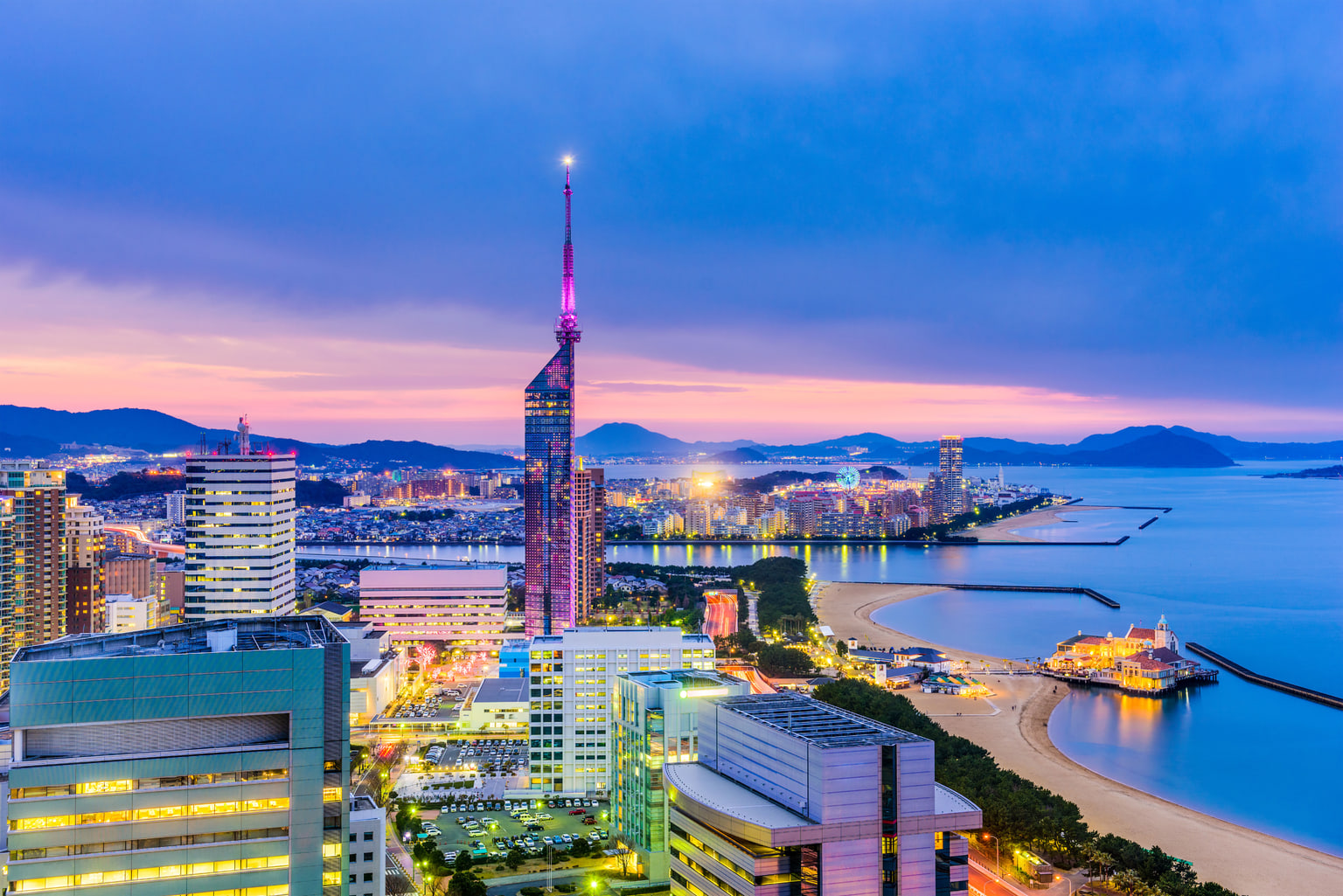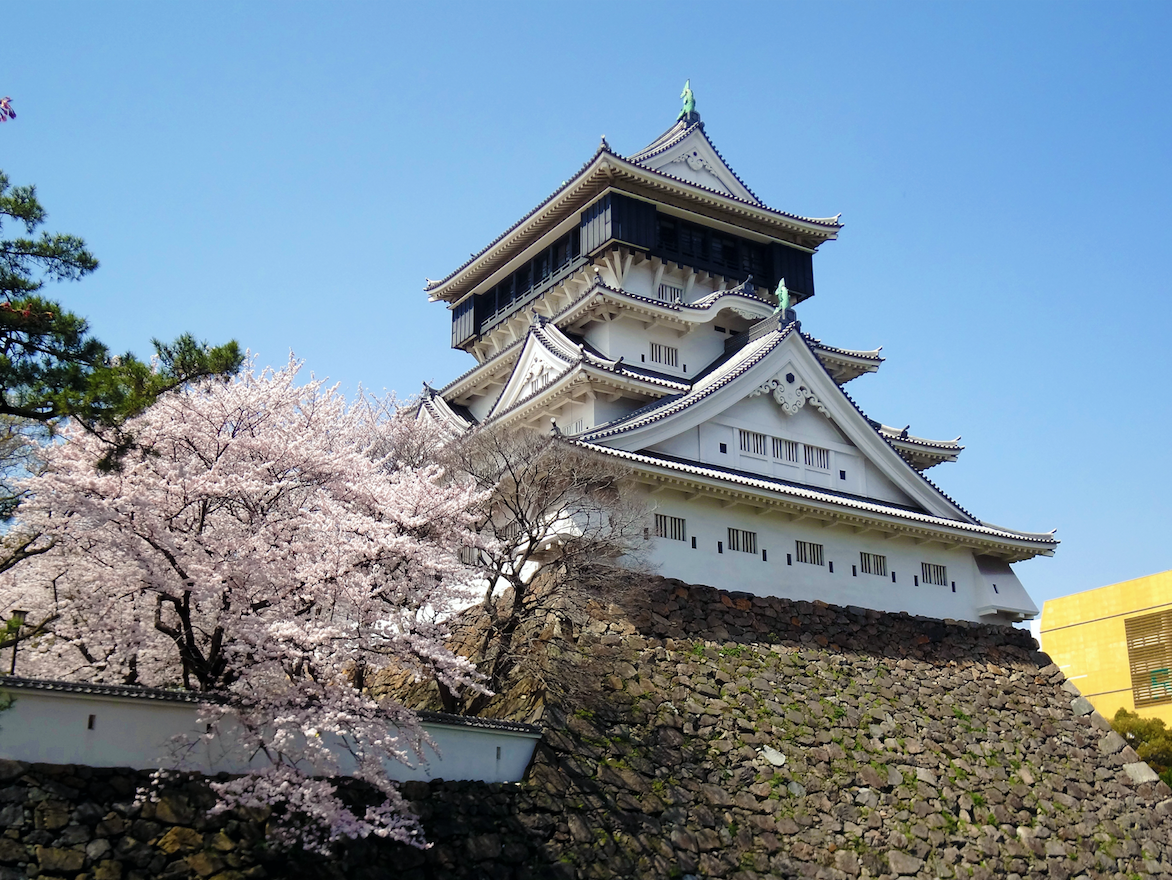Fukuoka: A Vibrant Hub in the Heart of Kyushu
Related Articles: Fukuoka: A Vibrant Hub in the Heart of Kyushu
Introduction
In this auspicious occasion, we are delighted to delve into the intriguing topic related to Fukuoka: A Vibrant Hub in the Heart of Kyushu. Let’s weave interesting information and offer fresh perspectives to the readers.
Table of Content
Fukuoka: A Vibrant Hub in the Heart of Kyushu

Fukuoka, the largest city in Kyushu, Japan, is a dynamic metropolis blending traditional charm with modern energy. Situated on the northern coast of the island, it boasts a strategic location, serving as a gateway to the diverse landscapes and cultural experiences of Kyushu and beyond. This article explores the multifaceted aspects of Fukuoka, delving into its history, geography, culture, and economic significance, providing a comprehensive overview of this captivating city.
A Glimpse into the Past:
Fukuoka’s history stretches back centuries, with its origins intertwined with the ancient kingdom of Yayoi. Archaeological evidence points to human settlements dating back to the 3rd century BCE, suggesting the city’s long-standing presence as a vital hub. The city’s name, derived from the "Fukuoka Shrine," highlights its historical connection to Shintoism, a prominent religious tradition in Japan.
Throughout the ages, Fukuoka witnessed significant events shaping its destiny. The establishment of the Hakata Bay Port in the 12th century propelled its growth as a major trading center. The city’s strategic location facilitated trade with mainland Asia, contributing to its prosperity and cultural exchange. During the Edo period (1603-1868), Fukuoka flourished as a center of the feudal domain of Fukuoka, further solidifying its position as a regional powerhouse.
Navigating the City: A Geographical Overview
Fukuoka’s geographical landscape offers a diverse and captivating experience. The city is nestled on the northern coast of Kyushu, facing the expansive waters of Hakata Bay. Its proximity to the sea significantly influences the city’s climate, characterized by mild winters and humid summers.
The city’s layout reflects its historical development, with the central district of Hakata, known for its bustling commercial activity, nestled along the bay. The city’s urban sprawl extends outwards, encompassing a network of residential areas, parks, and green spaces.
Cultural Tapestry: A Blend of Tradition and Modernity
Fukuoka’s cultural landscape is a vibrant tapestry woven from ancient traditions and contemporary influences. The city’s historical legacy is evident in its numerous shrines and temples, including the iconic Fukuoka Shrine, a testament to the city’s Shinto roots.
The city’s culinary scene is a testament to its rich cultural heritage. Hakata ramen, a local specialty, is a beloved dish across Japan. Other culinary delights include "Motsunabe," a hot pot dish featuring offal, and "Yatai," street food stalls offering a diverse range of local delicacies.
Fukuoka also boasts a thriving contemporary arts scene. The Fukuoka Art Museum showcases a diverse collection of Japanese and international art, while the city’s vibrant nightlife features numerous live music venues and cultural events.
Economic Engine: A Hub of Innovation and Growth
Fukuoka’s economic landscape is characterized by a diverse mix of industries, including manufacturing, technology, and tourism. The city is a major center for the production of electronics, automobiles, and pharmaceuticals. Its strategic location has also positioned it as a key player in international trade, with the Port of Hakata serving as a crucial gateway for goods entering and exiting Japan.
In recent years, Fukuoka has emerged as a hub for innovation and entrepreneurship. The city’s tech sector is rapidly growing, attracting startups and established companies alike. The presence of major universities and research institutions fosters a dynamic environment for innovation and technological advancement.
Exploring Fukuoka: A Journey Through its Landmarks
Fukuoka offers a wealth of attractions for visitors, catering to diverse interests. Here are some key landmarks and experiences that showcase the city’s multifaceted character:
-
Hakata Station: A bustling transportation hub, Hakata Station serves as a gateway to the city and beyond. Its iconic architecture and surrounding commercial district offer a glimpse into Fukuoka’s dynamism.
-
Fukuoka Tower: This iconic landmark offers panoramic views of the city and Hakata Bay. The tower’s observation deck provides stunning vistas, making it a popular destination for tourists and locals alike.
-
Canal City Hakata: A sprawling entertainment complex, Canal City Hakata features a variety of shops, restaurants, and a theater. The complex’s central canal adds a unique and vibrant touch to the urban landscape.
-
Nanakuma Island: A verdant oasis within the city, Nanakuma Island offers a tranquil escape from the urban hustle. Its serene parks and walking trails provide a refreshing respite for visitors.
-
Yanagawa River Cruise: A picturesque journey along the Yanagawa River, this traditional boat tour offers a glimpse into the city’s serene side. The river’s charming scenery and traditional boats create a memorable experience.
-
Dazaifu Tenmangu Shrine: Situated just outside Fukuoka, Dazaifu Tenmangu Shrine is a revered Shinto shrine dedicated to Sugawara no Michizane, a renowned scholar and deity of learning. Its serene grounds and historical significance make it a popular pilgrimage destination.
-
Fukuoka Castle: A historical landmark, Fukuoka Castle offers insights into the city’s feudal past. The castle’s ruins and surrounding park provide a tranquil setting for a historical journey.
FAQs about Fukuoka
1. What is the best time to visit Fukuoka?
Fukuoka enjoys a mild climate throughout the year, making it an attractive destination year-round. Spring and autumn offer pleasant temperatures and comfortable conditions for outdoor activities. Summer can be hot and humid, while winter brings a cool, crisp atmosphere.
2. How do I get around Fukuoka?
Fukuoka boasts a well-developed public transportation system, making it easy to navigate the city. The subway network connects major areas, while buses offer wider coverage. Taxis are readily available, though they can be more expensive.
3. What are some must-try local dishes in Fukuoka?
Fukuoka’s culinary scene is a delight for food enthusiasts. Hakata ramen, a local specialty, is a must-try. Other local delicacies include "Motsunabe," a hot pot dish featuring offal, and "Yatai," street food stalls offering a diverse range of local flavors.
4. Is Fukuoka safe for tourists?
Fukuoka is generally considered a safe city for tourists. However, it is essential to exercise common sense precautions and be aware of your surroundings.
5. What are some tips for visiting Fukuoka?
-
Plan your itinerary in advance: Fukuoka offers a wealth of attractions, so planning your itinerary in advance can help optimize your time.
-
Learn basic Japanese phrases: While English is spoken in tourist areas, knowing basic Japanese phrases can enhance your interactions with locals.
-
Embrace the local culture: Fukuoka is a vibrant city with a rich cultural heritage. Embrace local customs and traditions for a more authentic experience.
Conclusion:
Fukuoka stands as a testament to Japan’s dynamic blend of tradition and modernity. This vibrant city offers a captivating mix of cultural experiences, historical landmarks, and modern amenities. Whether you are a history buff, a food enthusiast, or an art lover, Fukuoka has something to offer every visitor. Its strategic location, thriving economy, and welcoming atmosphere make it an ideal destination for exploring the beauty and charm of Kyushu and beyond.








Closure
Thus, we hope this article has provided valuable insights into Fukuoka: A Vibrant Hub in the Heart of Kyushu. We appreciate your attention to our article. See you in our next article!